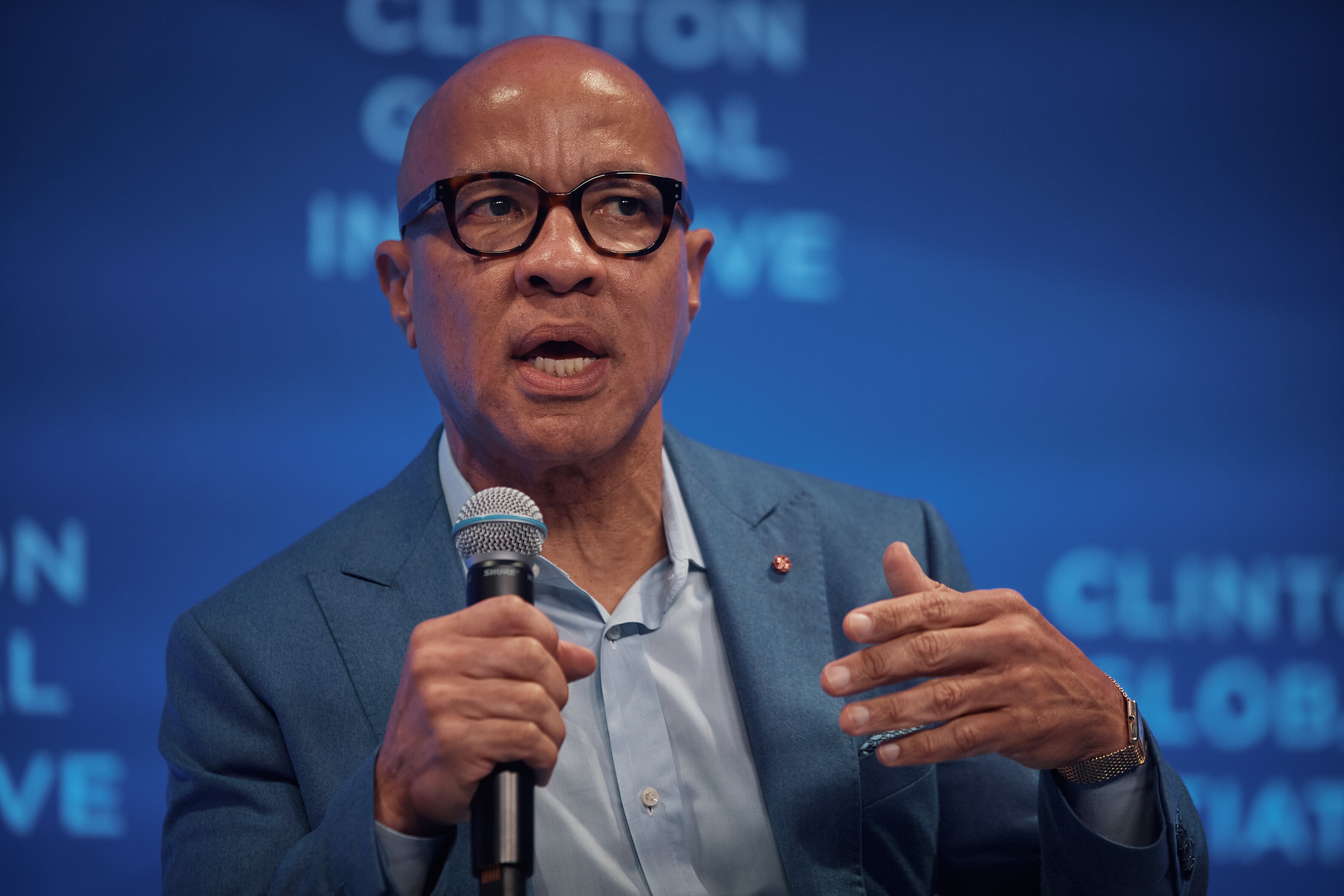NEW YORK (AP) — Artificial intelligence is a matter of design — not destiny.
That’s the message from ten philanthropic foundations aiming to loosen the grip that the technology’s moneyed developers, fueled by an investing frenzy, hold over its evolution. Launched Tuesday under the name Humanity AI, the coalition is committing $500 million across the next five years to place human interests at the forefront of the technology’s rapid integration into daily life.
“Every day, people learn more about the ways AI is impacting their lives, and it can often feel like this technology is happening to us rather than with us and for us,” MacArthur Foundation President John Palfrey said in a statement. “The stakes are too high to defer decisions to a handful of companies and leaders within them.”
Artificial intelligence has been embraced as a productivity booster in fields such as software engineering or medicine. It could help students with a range of visual, speech, language and hearing impairments to execute tasks that come easily to others. Humanitarian groups are testing its ability to translate important documents for refugees. And some farmers find it useful for detecting pests in their hard-to-survey fields.
But others question whether its deployment is actually improving their quality of life. Some point out that real harms exist for children turning to AI chatbots for companionship. AI-generated deepfake videos contribute to the online spread of misinformation and disinformation. The electricity-hungry systems’ reliance on energy generated by fossil fuels contributes to climate change. And economists fear AI is taking jobs from young or entry-level workers.
The problem, according to Omidyar Network President Michele L. Jawando, is that tech giants aren’t investing en masse in the first set of use cases. They’re focused on products that may or may not help humans thrive.
Jawando pointed to OpenAI ‘s recent entrance into the online marketplace as an example. At its DevDay last week, the company touted ChatGPT’s new capabilities as a virtual merchant that can sell goods directly for Etsy sellers or deliver food from Uber Eats.
The coalition recognizes the private sector’s desire to maximize profits and governments’ interest in spurring innovation, according to Jawando. But between tech companies’ great influence and the Trump administration’s regulatory rollbacks to speed up AI technology construction, she said philanthropic leaders recognized the need for more capital and more collaboration to amplify the voice of civil society.
“We feel like Humanity AI can really answer the question: what do humans need for flourishing? What does that actually look like?” Jawando said. “Most of what we’re offered right now is efficiency. But that’s not flourishing. I don’t want my life to be efficient. I want my life to flourish. I want it to feel rich and robust and healthy and safe.”
Led by the MacArthur Foundation and Omidyar Network, Humanity AI seeks to take back agency by supporting technology and advocates centering people and the planet. Members must make grants in at least one of five priority areas identified by the coalition: advancing democracy, strengthening education, protecting artists, enhancing work or defending personal security.
The alliance of a broad range of philanthropies underscores the widespread concern. Its ranks represent humanities supporters such as the Mellon Foundation, tacklers of inequality in the Ford Foundation, an open internet grantmaker in the Mozilla Foundation, leading education funders such as Lumina Foundation, charitable behemoths such as the David and Lucile Packard Foundation and groups like the Siegel Family Endowment that explore technology’s societal impacts.
They’re not the first philanthropic coalition to emerge this year with the goal of ensuring everyday people don’t get left behind. The Gates Foundation and Ballmer Group were among the funders who announced in July that they’d spend $1 billion over 15 years to help create AI tools for public defenders, parole officers, social workers and others who help Americans in precarious situations. Other efforts seek to improve AI literacy and expand access for entrepreneurs in low-income countries.
Humanity AI hopes to expand its coalition. Partners began coordinating grants this fall and will pool new money next year in a collaborative fund managed by Rockefeller Philanthropy Advisors.
Grantees include the National Black Tech Ecosystem Association, which builds diverse leadership pipelines in STEM; AI Now, a research institute at New York University studying AI’s social implications; and a Howard Law School initiative dedicated to developing AI solutions that advance civil rights.
“We can choose participation over control,” Mozilla Foundation Executive Director Nabiha Syed said in an emailed statement. “The systems shaping our lives must be powered by people, open by design, and fueled by imagination.”
___
Associated Press coverage of philanthropy and nonprofits receives support through the AP’s collaboration with The Conversation US, with funding from Lilly Endowment Inc. The AP is solely responsible for this content. For all of AP’s philanthropy coverage, visit https://apnews.com/hub/philanthropy.









